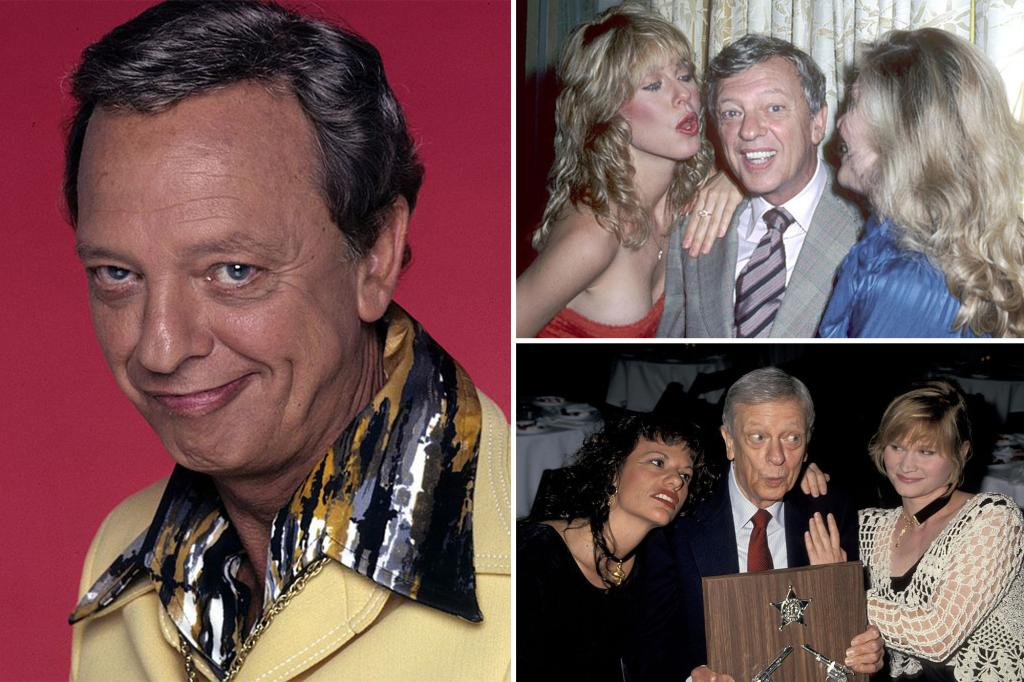
For generations of television viewers, Don Knotts was the familiar figure of Deputy Sheriff Barney Fife on The Andy Griffith Show. Others remember him as landlord Ralph Furley on Three’s Company, or as Ben Matlock’s quirky neighbor Les “Ace” Calhoun on Matlock. But to Karen Knotts, he was simply “Dad.” In this moving conversation, Karen Knotts — also an actor and writer — shares heartfelt memories of her famous father: from his difficult childhood with a dysfunctional family to his journey through adversity to reach the pinnacle of his career. She also talks about Don’s enduring friendship with Andy Griffith, his quiet battles with depression, and how Don Knotts — who was born in 1924 and died at age 81 in 2006 — kept everyone around him laughing until his final moments.
WOMAN’S WORLD (WW): What are some common misconceptions about your father?
KAREN KNOTTS (KK): I don’t think there are any big ones. My father became a pop culture icon, and when that happens, stories tend to spread. But most of them are true, or close to true. For example, there’s a story that he worked as a chicken plucker in a grocery store, which is absolutely true. After high school, he went to New York to pursue his acting dreams, but his strong Southern accent made it hard for him to get roles. When he returned home, the only job he could find was… plucking chickens.
I doubted the veracity of this story until I spoke to the son of the former store owner in Morgantown. He confirmed that people did pluck chickens back then. That made me believe in and love the stories about my father even more.
WW: Your father studied ventriloquism. How could you do that on the radio?
KK: It’s strange, but it’s possible! Edgar Bergen — my father’s idol — did it. Bergen created characters so vivid with his voice that the audience didn’t notice the technique anymore. My father taught himself to do ventriloquism from a book. As a kid, he used to make his mother laugh by making a pie or a laundry basket “talk.”
In high school, he used it to tease girls. He’d stand in Senior Alley and do ventriloquism so the girls would think someone was calling them — when they turned around, there was no one but my father standing there, looking innocent.
WW: That’s funny! Didn’t he get beat up?
KK: No! At least not as far as I know.
WW: How did your father’s difficult childhood experiences influence him?
KK: A lot. My father had a natural sense of humor, but he also struggled with deep trauma. His father and brother were alcoholics. When he was 13, his father died, and he finally broke free from his strict control. From there, he began to blossom — he was class president in high school, wrote for the newspaper, and made his first stage appearances.
WW: What do you remember about your father’s time on The Andy Griffith Show?
KK: I remember it very well. Even though he worked very hard — 10 to 12 hours a day — my father would take us to the set. I remember how surprised I was to see the town of Mayberry, which was just a bunch of storefronts on a vacant lot! When we were rehearsing, he would always have me read my lines dryly so he could practice the rhythm and intonation of the character.
WW: What were your impressions of Andy Griffith and Ron Howard at that time?
KK: Ron Howard and I were the same age, but he was more mature than the average kid. Andy Griffith was like a friendly uncle — warm but also thoughtful. One important thing I want to say: Andy was never jealous of my father. They really loved each other and were close for life. Later, Andy even brought my father to Matlock, so he could continue acting.
WW: Later, with his role in Three’s Company, did your father feel like his career was “revived”?
KK: Absolutely! Three’s Company introduced him to a whole new generation of viewers — people who didn’t know The Andy Griffith Show. My father was very grateful for that opportunity.
WW: Do you often reminisce about the glory days?
KK: No, you always live in the present. He rarely rewatches old episodes, focusing on new projects, variety shows, tours. His career never “stops.”
WW: What was it like growing up in a family like that?
KK: My father was loving but also moody and depressed. I grew up in a world filled with artists and exciting backstage stories. Despite the darkness in his life, he always found a way to make people around him laugh — and that saved him.
WW: How did that affect you?
KK: I struggled with low self-esteem, because I lived in such a big shadow. But over time, I learned that I didn’t have to be a carbon copy of my father. I learned to love and be proud of him, and to forge my own path.
Don Knotts was not only a master comedian in the public eye, but also a loving father, a man who overcame his trauma to find joy in every moment. Through Karen Knotts’s stories, we see not only an artist, but also a sincere, vulnerable, yet resilient person — a person who used laughter to light up his life and those around him.

